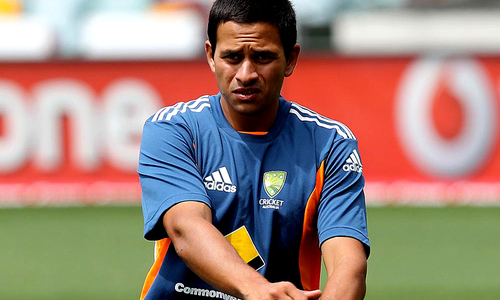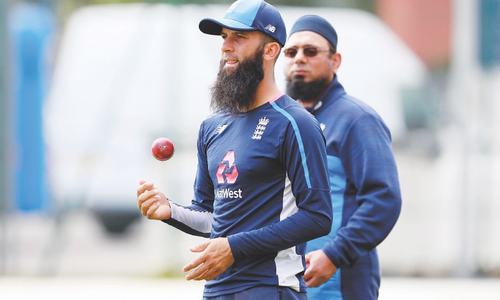Pakistani-origin batsman Usman Khawaja, one of the first few Asian origin players to compete at national level for Australia, in his latest blog opens up about racism and sports in Australia, saying that he does not support Australia like other immigrant children because he felt the country did not believe in him.
Usman, in the piece penned for PlayersVoice, says he was sceptical when people would say that they had not been able to play for Australia because they had the wrong skin colour until he found out why they said it.
He remembers being called a 'curry muncher' which, he says, was particularly hurtful. But, he says, it also helped him.
"Being racially vilified actually made me stronger in many respects. I even had a couple of kids try to fight me one day heading home from school. For no reason either! They were in my class one second and the school bell rang — the next minute I’m just about to leave the gates of my school and they are having a go at me," Usman, the founding contributor of PlayersVoice, shares.
Like other immigrant children, Usman too did not support the Australian cricket team when he was young because they were not like him; rather, looked like those who had vilified him.
"It was either West Indies, Pakistan, India, Sri Lanka. Anyone else. It’s probably why Brian Lara was my favourite cricketer. Let’s be honest, he was pretty good!"
"I was brought up to believe if I didn’t drink alcohol growing up I was un-Australian. So then why should I support a country that doesn’t believe in me?"
And then, there was the Australian team.
"I was brought up to be respectful, humble and polite. But when I watched the Aussie team, I saw men who were hard-nosed, confident, almost brutish. The same type of men who would sledge me about my heritage growing up."
He admits being embarrassed to call himself a Pakistani and used to say he was from Saudi Arabia, where his parents had spent a few years and he would often go to visit them.
But soon, he realised that racists were only a minority in Australia, and that the country was "also growing up when he was."
Refusing to accept that "he'd never make it to the Australian side", he says he worked to prove them wrong.
Years later, he was to become "the only Asian player at first class level in the whole country." He debuted for Australia in 2011 Sydney Ashes Test, becoming the first Muslim player to ever play cricket for Australia.
In the "changed" Australia, Usman was able to joke about race with his teammates. But he understands his privilege and that in another era, him even making it to the team — let alone share a laugh — would not have been possible.
"I count myself lucky to have a very strong-willed family. And a natural instinct that always wants to compete no matter what."
"If I didn’t have those things, I may also have been lost in the process," he says.
"There is no doubt racism and politics played a large roll in selections in the past. I’ve heard a few stories from past Anglo-Saxon players where this seems to be the case. It would just be the times that they lived in. Certainly cricket and society has come a long way," Usman says of how the society in Australia, and globally, progressed.
Even his "typical subcontinent Mum" wanted him to stop playing and focus on studies when he was just 10, Usman, who averages 46 in Tests, says.
"Fortunately for me, my Dad is the greatest cricket tragic of all time, and told my Mum I could do both."
"He understood you only get one shot at a sporting career. Stop now and that was the end of it."
About the emergence of multi-racial players in sports in Australia, he says: "Maybe it was inevitable with the growing multicultural community in Australia. Maybe it was a few friendly faces at the highest level. We will never know."
"What I do know is Australian cricket is slowly changing and will finally have a chance to reflect what Australia really is. An international team truly representative of its richly diverse population."













































